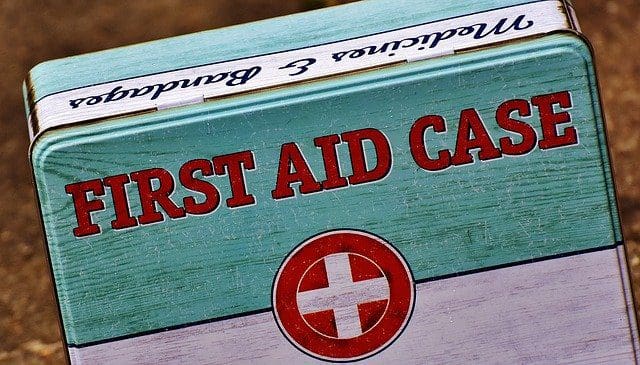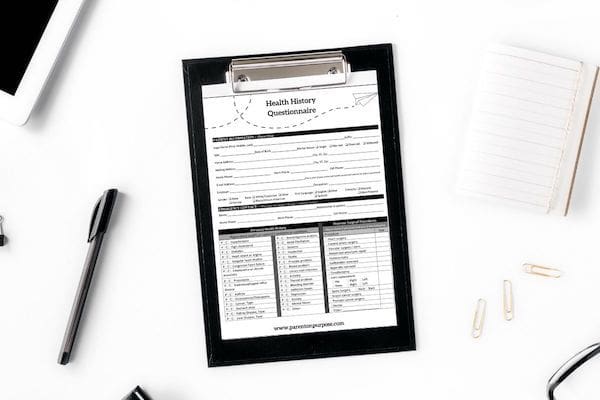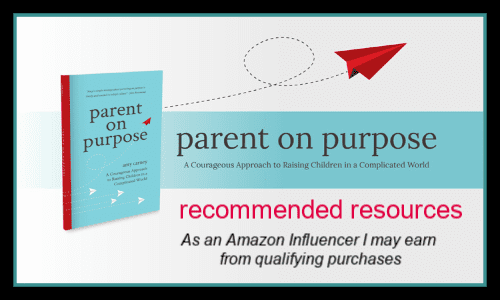3 Things to Teach Your High Schooler Before They Go to College
As my firstborn sons wind down their senior year of high school, I question what I still need to teach them over these next couple of months before launching them off to their respective college campuses come August.
One area where we parents seem to fall short in our teaching is helping our son or daughter manage their health.
In general, we do a relatively good job of talking with our kids about the importance of eating a healthy diet while getting proper exercise and plenty of sleep. Yet, are we failing to prepare our kids to manage their health when they leave our homes?
From the many stories I’ve heard from doctors and nurses, I’m thinking so.
12 GIFTS TO GIVE YOUR HIGH SCHOOL SENIOR FOR GRADUATION
Emergency Room Nurse Charity Hollywood says she consistently sees ill-equipped young adults stream into the emergency room where she works near a large university campus in Arizona. She says that she is striving to raise her 6-year old twin sons to be confident and capable from a young age and encourages other parents to prepare their children better when it comes to managing their health.
What skills do young adults lack when it comes to their health?
What can parents do differently while raising their kids so that they can launch adults who are more confident and capable when managing their health?
Your son or daughter should know how to:
1. Remedy minor ailments
“Students come into the emergency room for coughs and headaches that they’ve had for only a few hours,” said Hollywood. “They aren’t trying any home remedies first. Parents don’t seem to be teaching their young adults how to remedy minor ailments.”
Does your son or daughter know how to treat that headache, common cold, or sore throat, or do they rely on you to remedy all of their sicknesses for them?
I want my college students to have the confidence to treat their minor illnesses on their own. Therefore, I’ve been training them to decipher when it’s appropriate to take ibuprofen or sleep off their aches and pains while living in our home.
TAKE ACTION: Take your son or daughter to the drugstore with you and teach them what is appropriate to take for minor ailments such as a headache, stuffy nose, or a stomach bug. Together make up a first aid kit for them to take to college and make sure they understand how to use everything appropriately.
We don’t want our child showing up to the ER with a minor ailment because we failed to teach them how to care for themselves properly.
2. Assess when it’s necessary to see a medical professional
Our young adults need to know when to nurture themselves back to health and when they should make a doctor’s appointment, head to urgent care, or go to an emergency room.
They won’t know how to figure that out for themselves unless you begin allowing them to navigate those decisions when ill while still living in your home.
Does your child know when and how you would want them seeking medical help?

TAKE ACTION: Discuss the protocol you would like your son or daughter to follow when they become ill away at school. What urgent care or doctor should they visit? We don’t want our children to panic and have to contact us to ask the next move to make. Of course, we want our offspring to communicate with us what is going on with their health and ask us any questions they may not know, but we want them to be confident in managing their health in case we are unavailable.
3. Fill out personal and family medical history paperwork
Several doctors and nurses have told me that most of the college students who come into the emergency room are unaware of their medical history.
Dr. Jennifer Mozingo, an Emergency Physician of 20 years in Knoxville, Tennessee, said that young adults today think their medical history is “in the cloud” and should be accessible.
“Young adults need to understand that hospital medical systems don’t share information, so they need to know their personal health information,” said Dr. Mozingo.
The problem is we parents are forgetting to teach them this pertinent information.

Use this Health History Questionnaire Download as a tool for your child to fill out now so you can see what they know and what you still need to teach them.
TAKE ACTION: Have your son or daughter practice filling out this health history form, so they will be better prepared for when they have to do it out in the real world. Also, add a plastic bag containing immunization records, health insurance cards, and any other important information into their first aid kit so your student has what they may need in an emergency.
DOWNLOAD AND PRINT THIS MOCK HEALTH HISTORY QUESTIONNAIRE FOR YOUR TEEN TO PRACTICE FILLING OUT NOW
We must take the time to teach our children how to manage their health now so that when they need to do it when they are away from home, they will have the confidence and capability to do so.





Maybe things have changed in the 20 (!) years since I left college, but the first stop for illness back then was the campus health center. Treatment is free or cheap, and can usually take care of any relatively minor to medium issues. I know I went to mine for antibiotics for a sinus infection and drops for an eye infection, and I know things like ankle sprains were also checked out there. Since it wasn’t mentioned in the post, I thought it was worth bringing up. That said, I think your tips are still 100% useful, as kids should have an idea of what to take and when so they’re not going to the health center for every little thing, and they should still be aware of treatment options if things get more serious. But I still feel like the first step (before urgent care or the ER) could most often be the health center. They will have a better idea of what illnesses might be going around campus and should be able to recommend proper next steps if needed. Mind you, I’ve heard a handful of horror-ish stories (including my own round of antibiotics being sulfa, which often causes a reaction–and it did for me!) so it pays to be thoughtful about treatment and next steps and being proactive if you feel treatment isn’t sufficient. But it’s an easy, low-risk, independence-building first option when students need some medical treatment or advice.
Yes! Absolutely, students should know all about the campus health center, and like you said that most likely would be the first stop for many. Thank you!
This was great! I took notes! Although my oldest is 15, I plan on having her practice using the downloads forms your provided! Thank you for this article!
Thank you, Renee! Your daughter is the perfect age to start learning about all of this. Way to be proactive!
I love the idea of making a first aid kit with students before they go to college. Otherwise, they could end up not having one in a crisis moment. You never know when something like that could happen so it is always better to be prepared.